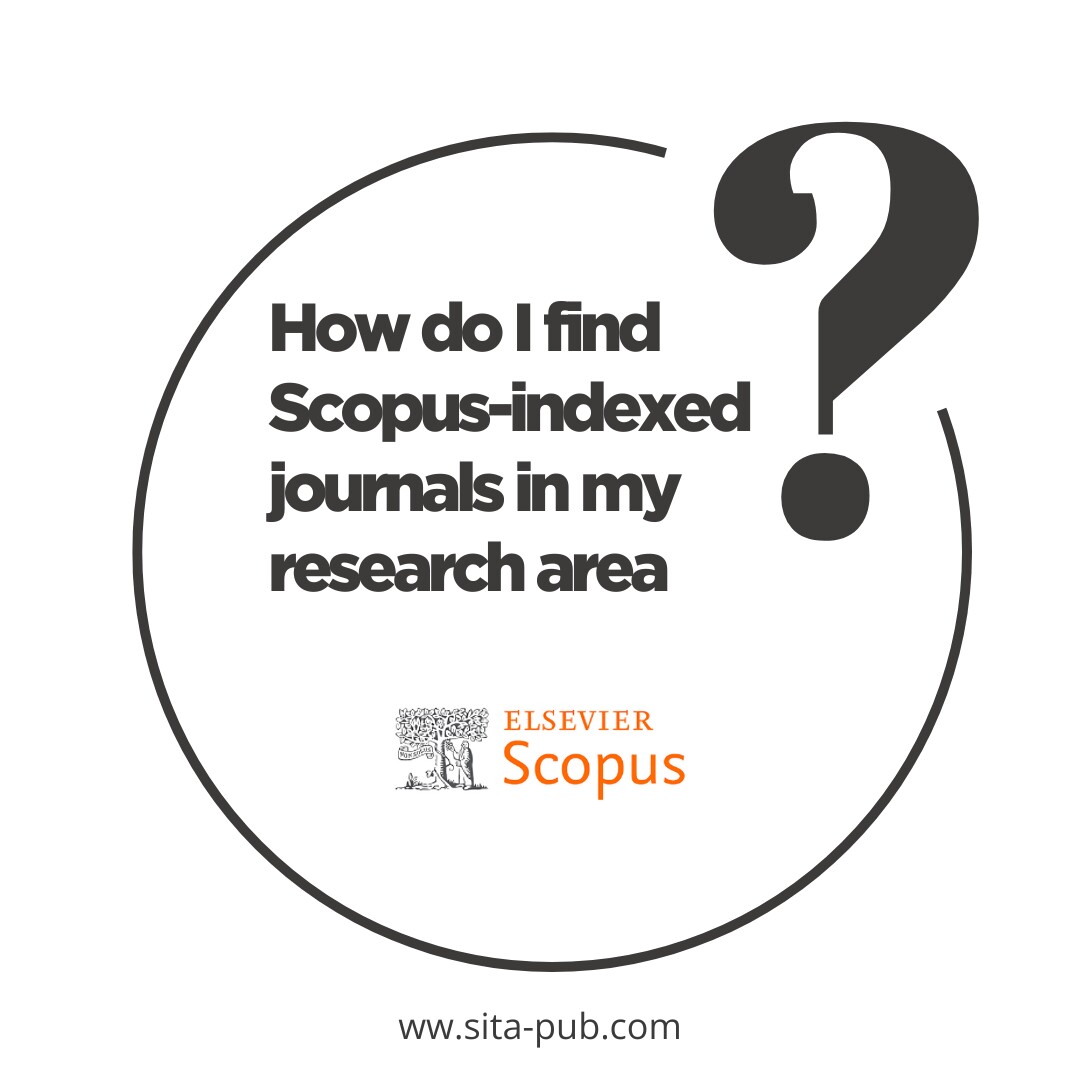How do I find Scopus-indexed journals in my research area?


Publishing your research in a Scopus-indexed journal is critical in ensuring that your work reaches a large audience, receives recognition, and contributes to the progress of knowledge in your field. Scopus, a comprehensive abstract and citation database, indexes over 70 million records from 24,000 peer-reviewed journals, books, and conference proceedings, making it a highly reputable resource for researchers worldwide. However, with so many publications, deciding which is ideal for your research may be challenging.
Scopus is a renowned abstract and citation database that plays a crucial role in academic and scientific settings. It offers scholars a comprehensive platform for:
Scopus indexes scholarly literature, providing researchers with a centralized resource for exploring and accessing research across fields.
Scopus offers citation statistics, enabling scholars to assess the effect of their work in their domains.
Scopus indexes journals using strict criteria, allowing researchers to find credible and influential journals in their fields of interest.
Publication in a Scopus-indexed journal increases the visibility and reach of research, making it accessible to a broader audience of scholars, practitioners, and policymakers.

Scopus indexes journals across many disciplines, ensuring comprehensive coverage of scientific and academic research. Here's a glimpse into the diverse range of subjects covered by Scopus-indexed journals:
Discipline | Examples |
|---|---|
Life Sciences | Biology, Genetics, Medicine, Pharmacy, Veterinary Science |
Physical Sciences | Chemistry, Physics, Astronomy, Geology, Materials Science |
Social Sciences | Economics, Psychology, Sociology, Political Science, Education |
Engineering & Technology | Computer Science, Electrical Engineering, Mechanical Engineering, Civil Engineering |
Arts & Humanities | Literature, History, Philosophy, Art, Music |
Health Sciences | Nursing, Public Health, Dentistry, Medicine, Pharmacy |
To ensure the quality and relevance of its indexed journals, Scopus employs a set of stringent criteria:
Journals must undergo a meticulous peer-review process, which ensures that published research is precise, original, and scientifically rigorous.
Scopus prioritizes journals from diverse countries and regions, reflecting the global nature of research and promoting international collaboration.
Journals must demonstrate a significant impact in their respective fields, as evidenced by citations, research influence, and contributions to the knowledge progress.
Scopus prioritizes journals that publish high-quality, original research and scholarly articles, ensuring the database's academic excellence.

Identifying the perfect Scopus-indexed journal for your research requires a strategic approach, considering your research area, target audience, and publication goals. Here's a step-by-step guide to help you navigate this process:

Clearly identify the specific discipline and sub-discipline of your research. It will narrow down your search and help you focus on journals relevant to your work.

Utilize Scopus's advanced search features to find journals that align with your research area. You can search by keywords, subject categories, and publication types to refine your results.

Many journals prominently display their indexing information, including whether they are indexed in Scopus. Look for this information on the "About Us" or "Contact Us" sections of the journal's website.

This database, published by Clarivate Analytics, lists journals and their impact factors. It also indicates whether a journal is indexed in Scopus.

Several online databases, such as Web of Science, DOAJ, and EBSCOhost, provide information about journal indexing, including Scopus indexing.

If you are unsure about the most suitable journals for your research, seek guidance from your research advisor, senior researchers in your field, or a publication support service. They can offer valuable insights and recommendations based on their expertise.
Once you have identified a few potential journals, it's crucial to evaluate their suitability for your research. Consider these key factors:
Ensure the journal's scope aligns with your research topic and that it publishes articles similar to yours. It ensures your research is a good fit for the journal's readership and editorial focus.
While not the sole determining factor, consider the journal's impact factor to gauge its influence and visibility within the field. That can help you understand the journal's reach and potential to contribute to your research's impact.
Evaluate the journal's publication time to ensure it aligns with your research timeline. It is essential if you have deadlines or specific publication goals in mind.
Review the journal's editorial policies, including submission guidelines, peer-review process, and author fees. It ensures you understand the journal's expectations and requirements for submission.
Finding the ideal Scopus-indexed journal for your research is a collaborative process. By leveraging the resources available, seeking expert guidance, and carefully evaluating journal suitability, you can confidently identify the platform that will best showcase your work and contribute to the advancement of knowledge in your field.
Ready to find the perfect Scopus-indexed journal for your medical research?
Contact SITA Academy today for a comprehensive list of journals tailored to your specific research area and receive expert guidance on journal selection and publication.

Why Choose SITA Academy?

Team of human professionals

Quality Assurance

Timely delivery

Satisfaction guarantee
If you have any questions, inquiries, or would like to learn more about our services, please don't hesitate to reach out to us. Our dedicated team is ready to assist you.